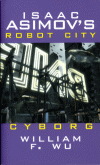
I am always open to suggestions when it comes to discovering new authors. By new, I mean to me, not new to writing. For example, I discovered Isaac Asimov a few years after his death, when he had already written over 400 books. Recently, one of my friends suggested I read the Star of the Guardians series by Margaret Weis. He had read it a long time ago, but was rereading the series again. I figured if it was good enough for him to read twice, I should give it a try. Weis offers an eloquent introduction to the series by first clarifying the genre her books fall into. Many fantasy readers might recognize her name as a co-author of many of the Dragonlance books.
If Fantasy is a romance of our dreams, then Galactic Fantasy is a romance of our future
…
Galactic Fantasy is certainly not science-fiction. Sci-fi often deals with the romance of plastic and chrysteel; our love and worship of technology.
…
I believe that man will reach the stars. When he does, the ‘science’ of how our spaceship gets from place to place will ultimately be less important than how we, as people, act when we get there. Galactic Fantasy explores how we deal with our own fears, ambitions and passions as we soar among the heavens—not the technicalities of getting there.
It is my understanding that George Lucas did not intend to write hard science fiction, but rather Galacitc Fantasy in Weis’s terms. Another word that has been used to describe Star Wars is “Space Opera.” I think either of these would be suitable descriptions.
Why do I mention Star Wars? As the first few chapters unfolded, I noticed quite a few familiar themes. I detected obvious influences from Star Wars and Dune very early on. For example, the Guardians seemed to be very similar to Jedi. They are an elite group, loyal to protecting their leaders. Their weapon, for example, is the bloodsword. There is selective breeding for the “Blood Royal” kind of like in Dune, however it is combined with genetic research and with a slightly different goal. There are a few others that I won’t mention because I consider them to be spoilers. (more…)




I enjoyed the first two books in the series. The problem with this book was the constant repetition of the laws of robotics. I also was annoyed at the humans’ constant manipulation of the laws to get the robots to do what they wanted them to do. Robots never need to be reminded of the laws, they are programmed to follow them. Robots must do what they are told unless it interferes with the first law, so why the manipulation? I think the author needed to state the laws maybe one time and then the humans could have created the situations where the robots would have to follow the laws without the constant reminding.
I did enjoy the plot line about the cyborg and the mental effects of becoming a combination of man and robot. I am hoping that the writing in the rest of the series goes back to the quality of the first two books.
From what I remember, some of the books in this series are better than others. Since they are all done by different authors, the next one might be better. I think that Prodigy was one of my favorites of the six. Unfortunately, this same author (of Cyborg) is the author of the last book as well.